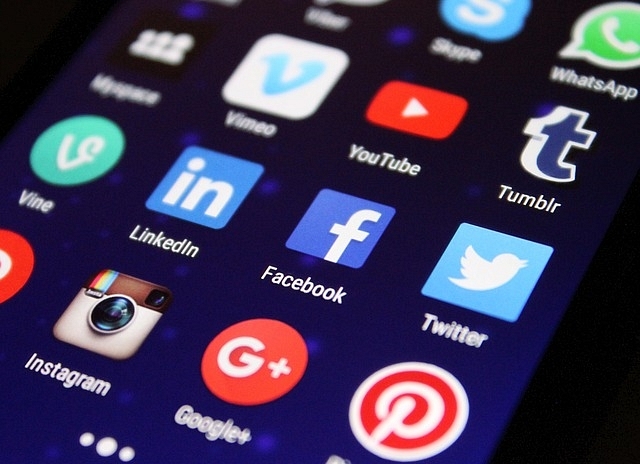Ideas
Social Media Ripping Apart Society: Former Facebook Executive
- Social media is manipulating lives of people who ‘curate’ their lives around this ‘perceived sense of perfection’, because they ‘get rewarded in these short term signals: hearts, likes, thumbs up’.

Social media networks
Former Facebook executive Chamath Palihapitiya who left the Silicon Valley media company six years ago said that social media is ripping apart the social fabric of the society. Palihapitiya was vice-president of user growth at Facebook who helped build the world’s biggest social media organisation. And now he is feeling guilty about it.
“I feel tremendous guilt.…We have created tools that are ripping apart the social fabric of how society works,” Palihapitiya said during a talk at Stanford Graduate School Of Business. He exhorted that “people need to hard break from some of these tools" because “the short-term dopamine-driven feedback loops that we have created are destroying how society works. No civil discourse, no cooperation, misinformation, mistruth – and it’s not an American problem. This is not about Russian ads. This is a global problem.”
“It is eroding the core foundations of how people behave by and between each other. And I don’t have a solution. My solution is that I just don’t use these tools anymore, and I haven’t for years,” he added. Further he told that his children were not allowed to use these things either.
Sean Parker, who joined Facebook as president when it was only five months old, also said recently that, "It literally changes your relationship with society, with each other. It probably interferes with productivity in weird ways. God only knows what it's doing to our children's brains.”
The social media networks be it Facebook, Twitter or more widely used platform like Whatsapp have become a popular media through which various kinds of actors with vested interests spread their propaganda. It’s not limited to politics alone. Fake news epidemic has taken new dimensions now and the misinformation spread fast and wide by these media has claimed many lives especially during riots and unrest and particularly in poor countries with low penetration of education.
Commenting on it, Palihapitiya said that “bad actors can now manipulate large swaths of people to do anything you want. It’s a bad, bad state of affairs. And we compound the problem. We curate our lives around this perceived sense of perfection, because we get rewarded in these short term signals: Hearts, likes, thumbs up. And we conflate that with value and we conflate it with truth, and instead what it really is fake, brittle popularity that’s short term and that leaves you even more, and admit it, vacant and empty before you did it. Because it forces you into this vicious cycle about what’s the next thing I need to do, because I need it back. And think about that compounded by two billion people.”
Facebook released a statement in response to Palihapitiya’s comments saying that the company has changed a lot since he left the company in 2011.
"You don’t realize it but you are being programmed. It was unintentional, but now you’ve got to decide how much you want to give up,” he summed it up succinctly.
The question then is: Are we ready to give up? And how much?
Support Swarajya's 50 Ground Reports Project & Sponsor A Story
Every general election Swarajya does a 50 ground reports project.
Aimed only at serious readers and those who appreciate the nuances of political undercurrents, the project provides a sense of India's electoral landscape. As you know, these reports are produced after considerable investment of travel, time and effort on the ground.
This time too we've kicked off the project in style and have covered over 30 constituencies already. If you're someone who appreciates such work and have enjoyed our coverage please consider sponsoring a ground report for just Rs 2999 to Rs 19,999 - it goes a long way in helping us produce more quality reportage.
You can also back this project by becoming a subscriber for as little as Rs 999 - so do click on this links and choose a plan that suits you and back us.
Click below to contribute.
Latest